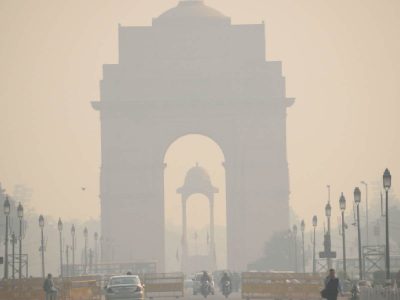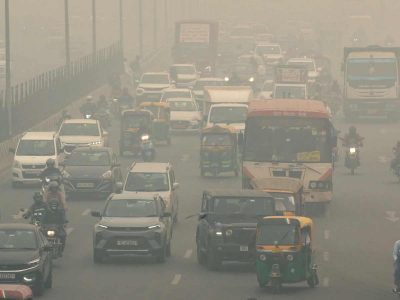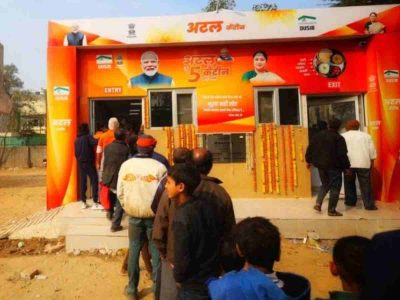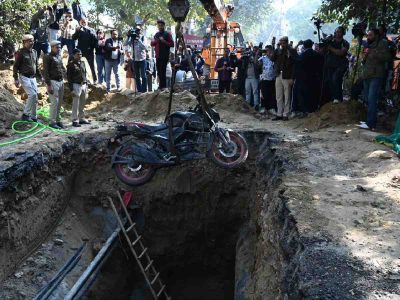For over a decade, private unaided schools in Delhi have been flouting the norms of the Right to Education (RTE) Act, 2009, which mandates that 25% of students admitted at the entry-level must belong to the Economically Weaker Section (EWS) of society. This sustained violation continues to deprive thousands of children of their fundamental right to education.
However, observers say no action has been taken by the Delhi Directorate of Education (DoE), which is responsible for monitoring and regulating these schools. The department, in its defence, claims that it is checking EWS student strength across private unaided schools and promises stern action against those violating the law.
The specific clause under violation is Section 12(1)(c) of the RTE Act, which obliges all Private Unaided Recognised Schools (except minority institutions) to admit at least 25% of students from EWS backgrounds at the entry level (Pre-school/Nursery, Pre-primary/KG, and Primary/Class 1) and to provide them free and compulsory education until the completion of elementary education.
According to Delhi Education Minister Ashish Sood, there are 355 private unaided schools in the city. These schools are required to obtain prior approval from the education department for any fee hike, after which the department is supposed to audit their finances.
Yet, in these same fee hike orders, many schools have revealed EWS enrolment figures that fall well below the mandated 25%. The department’s only response in such cases is a single note stating that the school is not complying with the DoE order or the land allotment conditions requiring 25% EWS admission. The matter is then referred to the concerned Deputy Director of Education (DDE) for further action.
To date, however, there has been no record of punitive action taken against any school for these violations.
An investigation by Patriot, which reviewed every fee hike order uploaded by the education department over the past decade, found widespread non-compliance. Although all 355 private unaided schools are meant to be audited annually, the number of schools actually audited has never exceeded 229 in a given financial year. This raises serious concerns: are the remaining schools not being audited, or are they failing to submit their financial statements altogether?
EWS shortfall widespread across private schools
A closer examination of EWS enrolment data shows that Salwan Public School had 21% of students from the EWS category in the academic year 2022–23, with 345 out of 1,655 students falling under this bracket. Bal Bhavan Public School reported 23.46% or 760 out of 3,239 students, still falling short of the 25% requirement.
Laxmi Public School admitted only 200 out of 1,216 students (16.45%) in 2022–23, and 200 out of 1,113 (17.97%) in 2023–24. Darbari Lal DAV Model School showed slightly higher compliance, with 20.27% or 859 out of 4,238 students. In stark contrast, Guru Tegh Bahadur Public School had a mere 2% of EWS students—46 out of 2,250—in 2022–23, down from 3% in each of the previous two academic years.
Ravindra Public School reported 19.25% EWS enrolment in 2015–16, which dropped to 15.30% in 2016–17. Venkateshwar Global School reached 16.46% or 444 out of 2,697 students in 2022–23, and K R Mangalam World School recorded a consistent 15%—381 out of 2,618 students—below the legal threshold.
In 2022–23, DAV Public Senior Secondary School, Janakpuri, came closest to compliance with 213 out of 860 students (24.77%). Bhatnagar International School had 296 out of 1,610 students (18%), and Gyan Mandir Public School admitted 314 out of 1,507 students (20.84%). Delhi Public School, Dwarka, showed improvement with 773 out of 3,486 students (22.17%), while Pragati Public School reported 448 out of 2,129 students (21.04%). Delhi International School recorded 186 out of 1,514 students (12.29%), and The Indian Height School had 358 out of 1,666 students (21.49%). New Green Field School stood at 15.01%, with 301 out of 2,005 students from the EWS category.
In earlier years, Arwachin Bharti Senior Secondary Public School admitted only 12% EWS students in 2018–19. OPG World School showed a slow increase from 0% in 2014–15 to 15% in 2021–22. Sri Venkateshwar International School stood at 16% in 2022–23 with 394 out of 2,534 students. GD Goenka Public School recorded 15% in 2018–19, and Lancers Convent had 19% or 942 out of 4,865 students. Sachdeva Public School admitted 11% EWS students in 2016–17, while St George’s School reported just 9% in 2018–19. Arwachin International School reported 11.7% in 2017–18, and ASN Senior Secondary School stood at 18% in 2018–19.
Maharaja Agarsain Public School in Ashok Vihar showed a gradual rise, enrolling 675 out of 3,230 students (21%) in 2022–23. Maharaja Agarsen Adarsh Vidyalaya in Pitampura maintained between 15% and 16%, and Maharaja Agrasen Model School reached 18% in 2018–19. MaxFort School, also in Pitampura, had 21% EWS enrolment in the same year. National Victor Public School remained at 13%, while New Oxford Public School reported only 5%.
These figures reflect a consistent pattern of under-enrolment, underscoring systemic failure in the implementation of the RTE Act in Delhi. The inaction of the DoE in the face of documented non-compliance raises serious questions about the administration’s resolve to ensure educational equity.
Parents’ association alleges corruption, inaction
The Delhi Parents Association (DPA) has openly criticised the education department, accusing it of corruption and collusion with private schools.
“These private schools, built on DDA land, are required to admit 25% EWS students,” President of the DPA Aparajita Gautam told Patriot. “But these schools openly violate the norms and even declare this in their annual audit reports to the DoE.”
Also Read: Delhi: Private schools under fire for renting out sports facilities in violation of Societies Act
She further said the department, which is supposed to audit school finances and check for violations, has turned a blind eye. “Despite several complaints and letters, no action has been taken. These schools are taking away the right to education from EWS students,” she said.
Gautam alleged that some schools are selling EWS seats under the management quota and earning crores, while simultaneously claiming government funds allocated for EWS students. She added that for ten years, the department has done little beyond issuing formal notices of violation.
“The schools have turned into money-making businesses. Their greed has stooped to such levels that they now deprive the poorest children of their rights,” she said.
DoE response evasive, audits selective
Responding to these allegations, a senior official in the Delhi education department stated that they are currently reviewing EWS enrolment across private schools. “If any school is found violating the guidelines, we will take stern action,” the official said.
When asked why no action has been taken over the past decade, the official claimed ignorance of such violations and promised to investigate.
Another official clarified that the department audits only those schools that submit proposals for fee hikes, implying that schools not seeking a hike are left unaudited. This selective auditing approach runs counter to the department’s responsibility to review all private unaided schools annually.
Gautam also highlighted another overlooked mandate: private unaided schools are required to reserve 3% of the 25% EWS quota for Children With Special Needs (CWSN). “But not a single CWSN student has been admitted in these schools,” she said.





